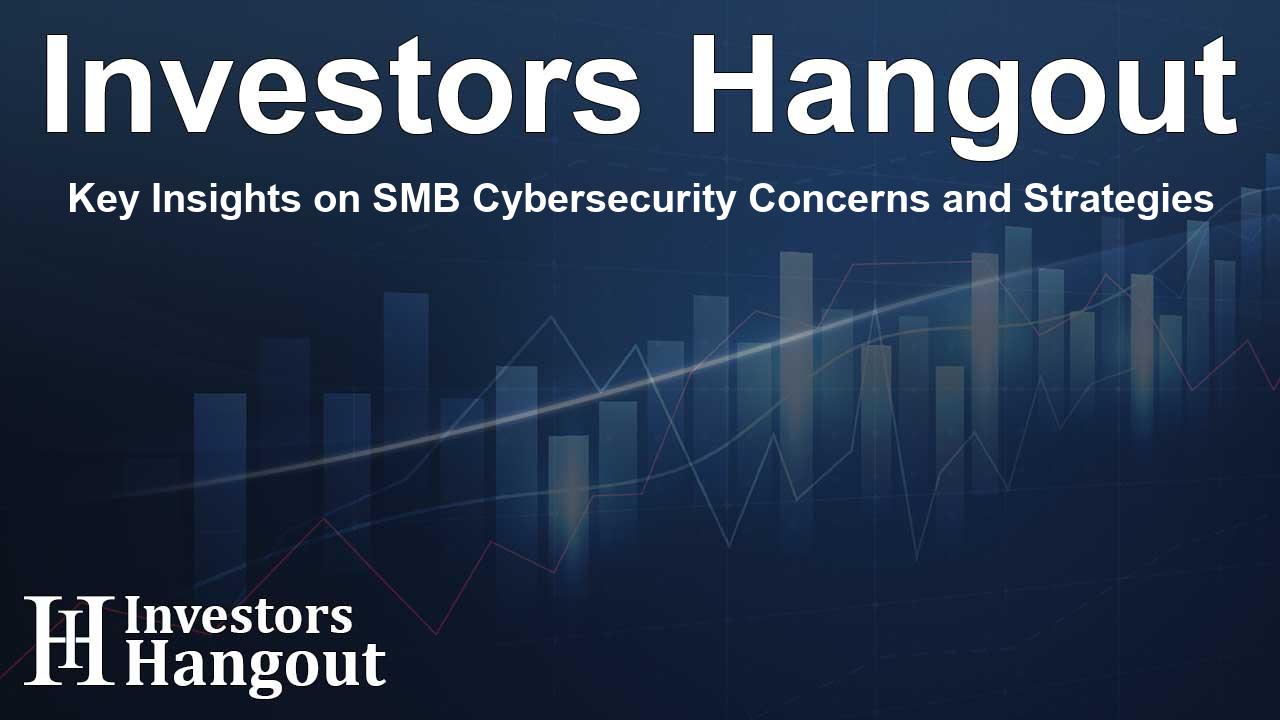Key Insights on SMB Cybersecurity Concerns and Strategies

Understanding SMB Cybersecurity Challenges
In a recent survey conducted by RADICL, a leader in cybersecurity innovation aimed at securing small and medium-sized businesses (SMBs), critical insights have emerged regarding the state of cybersecurity within the U.S. Defense Industrial Base (DIB). This enlightening survey highlights the pressing challenges and priorities of SMBs working in defense-related sectors, especially as cyber threats continue to evolve.
Growing Cybersecurity Awareness Among SMBs
The RADICL survey reveals an encouraging trend: a significant 77% of SMBs prioritize enhancing their cybersecurity measures. This growing awareness reflects a shift in mindset among businesses that are crucial to national defense and critical infrastructure. Small businesses are realizing the importance of developing a robust cybersecurity posture to protect sensitive government data and maintain their operational integrity.
Significant Findings from the Survey
Despite the optimism, the report uncovers major gaps in cybersecurity readiness. Interestingly, 80% of participants rated their internal security skills as high. However, 38% of these organizations admitted they would take a week or more to detect a cyber threat, while 54% acknowledged they could take two days or longer to respond effectively. This discrepancy indicates a dangerous overestimation of preparedness.
Addressing the Skills Gap in Cybersecurity
Another critical insight from the survey is the noticeable cybersecurity skills gap among SMBs. With over half of the surveyed businesses reporting low to medium effectiveness in essential defense capabilities—such as threat hunting and monitoring—it’s clear that many organizations are struggling to keep pace with the increasing sophistication of cyberattacks. As threats grow, so does the need for outside support.
The Rise of Outsourced Security Solutions
In response to these challenges, a significant 63% of businesses expect their budgets for outsourced security to increase. This reflects a growing trend toward relying on third-party expertise to fill skills gaps and bolster defenses against digital threats. By leveraging the specialized knowledge of cybersecurity professionals, SMBs can enhance their security postures and better protect themselves from potential breaches.
The Compliance Challenge
Compliance with industry standards remains a formidable challenge for many SMBs. The survey reports that only 21% of respondents claimed full compliance with CMMC Level 1 criteria, and just 17% met the more rigorous standards of Level 2. Although there is a notable increase in the number of SMBs recognizing the importance of cybersecurity, many still fall short of meeting federal compliance requirements.
Understanding the Risks of Non-Compliance
The implications of these compliance failures are significant. As Chris Petersen, co-founder and CEO of RADICL, points out, a staggering number of compromised accounts indicates a serious security threat that could jeopardize sensitive defense information. With many SMBs vulnerable to attacks, the urgent question arises: who is gaining unauthorized access to this crucial data, and what risks does it pose to national security?
Conclusion: A Call to Action for SMBs
As cyber threats become increasingly sophisticated, it is essential for SMBs within the defense supply chain to reassess their cybersecurity strategies. RADICL highlights the necessity for these businesses to prioritize effective training, enhance compliance with standards such as CMMC, and consider investing in outsourced cybersecurity solutions. Given the reliance on SMBs for national defense strategies, their security should be treated with the utmost importance.
Frequently Asked Questions
1. What are the main findings of the RADICL survey?
The RADICL survey highlighted that 77% of SMBs prioritize cybersecurity, but many overestimate their readiness and face significant skills gaps.
2. Why are SMBs experiencing cybersecurity skills gaps?
Many SMBs lack the resources or expertise to hire adequate internal cybersecurity staff, prompting reliance on outsourced security solutions.
3. What does CMMC compliance mean for SMBs?
CMMC compliance refers to the requirements set for businesses to protect sensitive information related to defense contracts and improve their overall cybersecurity posture.
4. How do outsourced security services benefit SMBs?
Outsourced security services provide expert support and resources that SMBs often lack, helping them improve defenses and reduce response times to threats.
5. What should SMBs do to enhance their cybersecurity readiness?
SMBs should invest in employee training, prioritize compliance with federal regulations, and consider collaborations with cybersecurity professionals to strengthen their defenses.
About The Author
Contact Kelly Martin privately here. Or send an email with ATTN: Kelly Martin as the subject to contact@investorshangout.com.
About Investors Hangout
Investors Hangout is a leading online stock forum for financial discussion and learning, offering a wide range of free tools and resources. It draws in traders of all levels, who exchange market knowledge, investigate trading tactics, and keep an eye on industry developments in real time. Featuring financial articles, stock message boards, quotes, charts, company profiles, and live news updates. Through cooperative learning and a wealth of informational resources, it helps users from novices creating their first portfolios to experts honing their techniques. Join Investors Hangout today: https://investorshangout.com/
The content of this article is based on factual, publicly available information and does not represent legal, financial, or investment advice. Investors Hangout does not offer financial advice, and the author is not a licensed financial advisor. Consult a qualified advisor before making any financial or investment decisions based on this article. This article should not be considered advice to purchase, sell, or hold any securities or other investments. If any of the material provided here is inaccurate, please contact us for corrections.
